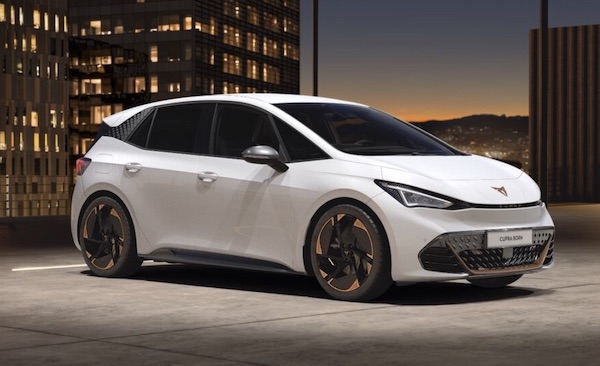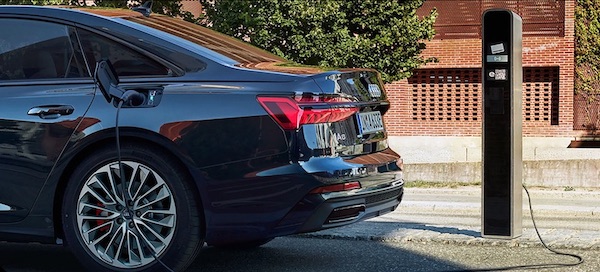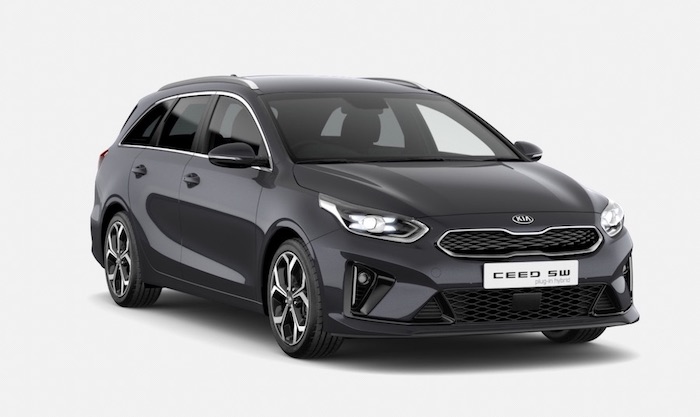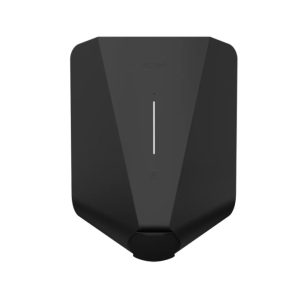Overview
SEAT CUPRA, S.A.U, simply known as CUPRA, is the high-performance motorsport subsidiary of SEAT S.A., Spain’s first family car manufacturer. The automotive company was founded in 1950 and is headquartered in Martorell, Spain.
In 1986, SEAT was sold to the German automotive group, Volkswagen A.G. CUPRA was previously known as SEAT Sport. The high-performance CUPRA brand was created in 2018. The manufacturer is committed to becoming a fully-electric brand by 2030. CUPRA is expected to introduce the all-electric CUPRA Terramar and the all-electric CUPRA UrbanRebel in due course. The company has the following portfolio of plug-in hybrid electric vehicles (PHEVs) and battery-electric vehicles (BEVs):
- CUPRA Formentor e-HYBRID
- CUPRA Leon e-HYBRID
- CUPRA Leon Estate e-HYBRID
- All-electric Cupra Born
- All-electric Cupra Tavascan
Electric Cars: The Basics
For those of you new to zero-emission electric driving, we recommend a read of the following articles:
Sign up to the e-zoomed Electric Living newsletter
The All-Electric Cupra Born Hatchback
The all-electric Cupra Born hatchback is the first pure electric car from the SEAT high performance brand. The EV is manufactured on the Volkswagen MEB platform, which is also used by the all-electric VW ID.3. The Cupra electric car is a sportier version of the VW ID.3 hatchback.
The Cupra electric vehicle (EV) is available in two EV battery size options: 58 kWh and 77 kWh. The 58 kWh EV battery has an emission-free range up to 259 miles (WLTP), while the 77 kWh EV battery has a range up to 340 miles (WLTP).
The real-world electric range will depend on a number of factors, to include: driving style, road conditions, speed, tyre size, passenger load, weather, etc. For the 58 kWh EV battery, expect a real-world pure electric range closer to 220 miles, while for the 77 kWh battery, 300 miles will be more realistic. Nevertheless, the Cupra electric hatchback has a good and useful range on a single charge!
Do keep in mind that driving an electric car is much cheaper per mile, compared to a conventional internal combustion engine (ICE) vehicle. Depending on the cost of charging, electric driving will cost between 5 pence and 10 pence per mile. We at e-zoomed recommend charging an electric car, overnight at home, when the electricity prices are cheaper.
The EV is capable up to 135 kW DC charging, and the 77 kWh battery can be charged in 36 minutes (5%-80% SOC). The 58 kWh EV battery can be charged in 35 mins (120 kW DC). The electric car has an 11 kW onboard charger as standard, which is certainly an advantage for those charging destinations with 3-phase power supply (home and workplace).
The 58 kWh EV battery can be fully charged in 6 hours and 15 minutes using a three-phase EV charger. The 77 kWh will take up to 7 hours 30 minutes. The V1 is available only in the 58 kWh, while the V2 and V3 variants are available in both the 58 kWh and 77 kWh EV battery options.
But for most homes in the UK, powered by a single-phase supply, using a dedicated home EV charger, like myenergi Zappi, expect the EV to be fully charged in under 10 hours for the 55 kWh battery and in under 12 hours for the 77 kWh battery. We at e-zoomed recommend a topping up approach to charging an electric car. This way to fully charge the EV will take shorter time and regular charging is good for the long-term maintenance of the EV battery.
The Cupra EV is packed with technology, to include: rear traffic alert, adaptive cruise control, high beam assist, heat pump (improves range), intelligent park assist, travel assist, augmented reality head-up display, top view camera, pre-crash assist, exit warning and Cupra Connect Services.
In terms of practicality, the EV is reasonable and offers up to 385 L boot space. As for the exterior body styling, there is no arguing that the sportier look is more appealing, compared to a traditional family hatchback!
All Cupra Born variants are available as only rear-wheel drive. For the entry-level Cupra Born V1 58 kWh, the pure electric hatchback can achieve 0-62 mph in 7.3 seconds. The EV delivers a maximum power up to 204 ps and 310 Nm torque. The top speed is 99 mph.
The performance of the top of the range is even sportier. The Cupra Born electric has been named the Best Small Electric Car of the Year 2022 by WhatCar.
Company-car drivers can also take advantage of the lower Benefit-in-Kind (BiK-2%) tax rate for the electric car. Bottom-line, electric driving is good for the environment and the wallet!
You can lease electric vehicles (EVs) via e-zoomed at very competitive prices!
| PROS | CONS |
|---|---|
| 11 kW onboard charger as standard | Four-wheel drive not available |
| DC charging up to 135 kW | Rear seats have limited space |
| Good EV range (340 miles) | Cheaper pure electric hatchback alternatives |
The All-Electric Cupra Born Hatchback (credit: Cupra)
| At A Glance | |
|---|---|
| EV Type: | Battery-Electric Vehicle (BEV) |
| Body Type: | Hatchback |
| Plug-In Car Grant (PiCG): | N/A |
| Engine: | Electric |
| Available In UK: | Yes |
| Variants (7 Options) |
|---|
| CUPRA Born V1 58 kWh (from £34,715) |
| CUPRA Born V2 58 kWh (from £36,635) |
| CUPRA Born V3 58 kWh (from £38,390) |
| CUPRA Born V2 58 kWh (from £37,445) |
| CUPRA Born V2 77 kWh (from £40,215) |
| CUPRA Born V3 58 kWh (from £39,195) |
| CUPRA Born V3 77 kWh (from £41,975) |
| EV Battery & Emissions | |
|---|---|
| EV Battery Type: | Lithium-ion |
| EV Battery Capacity: | Available in two battery sizes: 58 kWh/ 77 kWh |
| Charging: | Up to 135 kW DC rapid charging. Onboard charger: 11 kW AC |
| Charge Port: | Type 2 |
| EV Cable Type: | Type 2 |
| Tailpipe Emissions: | 0g (CO2/km) |
| EV Battery Warranty: | 8 years or 100,000 miles |
| Dimensions | |
|---|---|
| Height (mm): | 1540 |
| Width (mm): | 1809 |
| Length (mm): | 4322 |
| Wheelbase (mm): | 2766 |
| Turning Circle (m): | 10.15 |
| Boot Space (L): | 385 |
| Average Cost Of Residential Charging | |
|---|---|
| Battery net capacity : 16.7 kWh | £2.40 |
| Battery net capacity : 30.0 kWh | £4.32 |
| Battery net capacity : 39.2 kWh | £5.64 |
| Battery net capacity : 45.0 kWh | £6.48 |
| Battery net capacity : 50.0 kWh | £7.20 |
| Battery net capacity : 64.0 kWh | £9.22 |
| Battery net capacity : 71.0 kWh | £10.22 |
| Battery net capacity : 77.0 kWh | £11.09 |
| Battery net capacity : 90.0 kWh | £12.96 |
| Battery net capacity : 100.0 kWh | £14.40 |
- Note 1: The average cost of residential electricity in the UK varies depending on the region, supplier and type of energy used. An average for the UK is 14.40 p/kWh.
- Note 2: Not all EV manufactures make available the data on net EV battery capacity, and in a number of instances the EV battery capacity advertised, does not state if it is gross or net capacity. In general, usable EV battery capacity is between 85% to 95% of the gross available capacity.
| Charging Times (Overview) | |
|---|---|
| Slow charging AC (3 kW – 3.6 kW): | 6 – 12 hours (dependent on size of EV battery & SOC) |
| Fast charging AC (7 kW – 22 kW): | 3 – 8 hours (dependent on size of EV battery & SoC) |
| Rapid charging AC (43 kW): | 0-80%: 20 mins to 60 mins (dependent on size of EV battery & SoC) |
| Rapid charging DC (50 kW+): | 0-80%: 20 mins to 60 mins (dependent on size of EV battery & SoC) |
| Ultra rapid charging DC (150 kW+): | 0-80% : 20 mins to 40 mins (dependent on size of EV battery & SoC) |
| Tesla Supercharger (120 kW – 250 kW): | 0-80%: up to 25 mins (dependent on size of EV battery & SoC) |
- Note 1: SoC: state of charge
| Cupra Born V1 (58 kWh) | |
|---|---|
| EV Battery Capacity: | 58 kWh |
| Pure Electric Range (WLTP): | 259 miles |
| Electric Energy Consumption (kWh/100 km): | 15.5 – 18.0 |
| Charging: | 120 kW DC rapid charging (5%-80% SOC: 35 mins). Onboard charger 11 kW AC (0%-100%: 6 hrs 15 mins) |
| Top Speed: | 99 mph |
| 0-62 mph: | 7.3 seconds |
| Drive: | Rear-wheel drive (RWD) |
| Max Power (PS): | 204 |
| Torque (Nm): | 310 |
| Transmission: | Automatic |
| Seats: | 5 |
| Doors: | 5 |
| Kerb Weight (kg): | 2,240 |
| Colours: | 6 |
| NCAP Safety Rating: | N/A |
| Cupra Born V2 (77 kWh) | |
|---|---|
| EV Battery Capacity: | 77 kWh |
| Pure Electric Range (WLTP): | 340 miles |
| Electric Energy Consumption (kWh/100 km): | 15.8 – 17.6 |
| Charging: | 135 kW DC rapid charging (5%-80% SOC: 36 mins). Onboard charger 11 kW AC (0%-100%: 7 hrs 30 mins) |
| Top Speed: | 99 mph |
| 0-62 mph: | 7.0 seconds |
| Drive: | Rear-wheel drive (RWD) |
| Max Power (PS): | 231 |
| Torque (Nm): | 310 |
| Transmission: | Automatic |
| Seats: | 4 |
| Doors: | 5 |
| Kerb Weight (kg): | 1,946 – 2,036 |
| Colours: | 6 |
| NCAP Safety Rating: | N/A |
| Cupra Born V3 (77 kWh) | |
|---|---|
| EV Battery Capacity: | 77 kWh |
| Pure Electric Range (WLTP): | 340 miles |
| Electric Energy Consumption (kWh/100 km): | 15.8 – 17.6 |
| Charging: | 135 kW DC rapid charging (5%-80% SOC: 36 mins). Onboard charger 11 kW AC (0%-100%: 7 hrs 30 mins) |
| Top Speed: | 99 mph |
| 0-62 mph: | 7.0 seconds |
| Drive: | Rear-wheel drive (RWD) |
| Max Power (PS): | 231 |
| Torque (Nm): | 310 |
| Transmission: | Automatic |
| Seats: | 4 |
| Doors: | 5 |
| Kerb Weight (kg): | 1,946 – 2,036 |
| Colours: | 6 |
| NCAP Safety Rating: | N/A |
While e-zoomed uses reasonable efforts to provide accurate and up-to-date information, some of the information provided is gathered from third parties and has not been independently verified by e-zoomed. While the information from the third party sources is believed to be reliable, no warranty, express or implied, is made by e-zoomed regarding the accuracy, adequacy, completeness, legality, reliability or usefulness of any information. This disclaimer applies to both isolated and aggregate uses of this information.










































